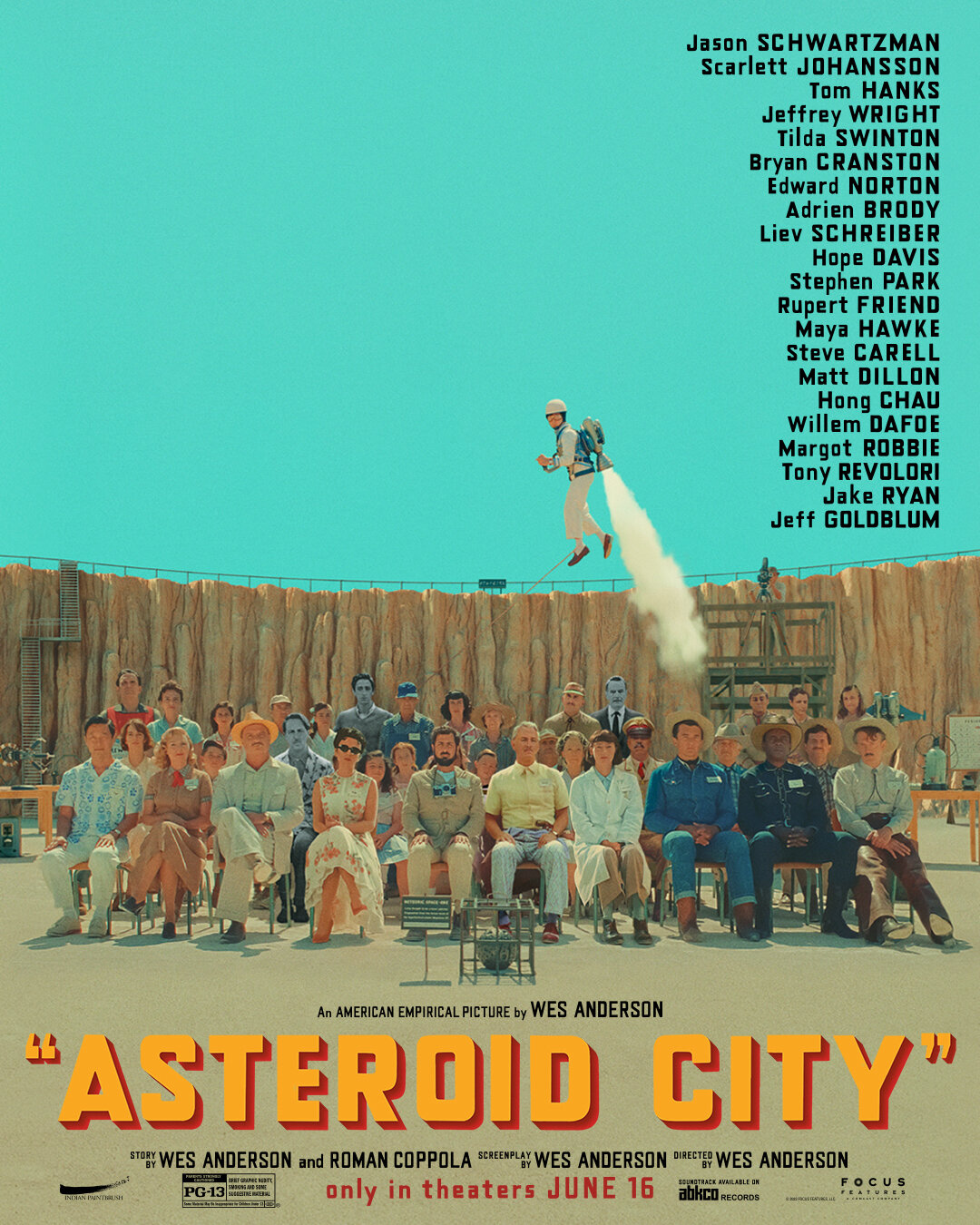
Asteroid City – A Microcosm of Infinity
By Ash Taylor
A play set within a broadcast set within a movie, Wes Anderson’s Asteroid City is a microcosm of unreality and a homage to nostalgia.
Introduced immediately with the line, “Asteroid City does not exist”, the audience is catapulted into a pastel, retro-futuristic world of endless desert, wide blue skies, and backdrops that are suitably reminiscent of the backdrop of a play. Remarkably self-aware, the film (or rather, the broadcast of the play) pokes fun at Anderson’s own directorial style – noting the stage play, and therefore the film, is separated into three acts: today, three days later, and one week later.
The film details the play, Asteroid City, which takes place in the aforementioned town that does not exist. Its frame within a frame narrative showcases not just the play itself, but also provides metatextual context to the play by having the actors who play the characters engage not just with each other and the script, but also with the writer and director. Written by renowned playwright Conrad Earp, the play takes centre stage with Wes Anderson’s signature colour palette, while the ‘real’ world exists in black and white, allowing the film to play with chiaroscuro in scenes of intense magnitude.
This triple-frame narrative acts as a funhouse mirror, reflecting upon itself. That too is reflected within the play itself, as Conrad notes that it is a play about infinity. The two realities converge at the end, as colour and black and white meet, but the point of the play, and therefore the film, is shrouded in confusion – and this is intentional.
The play and the film hint at a poignant truth, some meaning to the universe, but ultimately, it’s not revealed to us, the audience. In the end, that’s half the point.
In the climax of the film, the actor Jones Hall (played by Jason Schwartzman) who plays Augie Steenbeck, breaks character. Physically removing himself from the stage, he moves from the colourful, whimsical world of Asteroid City and we finally see the stage itself. It’s the first time that the two worlds have actually collided. Hall, in conversation with the play’s director, Schubert Green (played by Adrien Brody), remarks that he still doesn’t understand the play. Green’s answer is simple: “Doesn’t matter. Just keep telling the story.”
This exchange sums up the entirety of the film. Understanding doesn’t matter – so long as you tell the story. We bring our own interpretations, our own meaning, and our own biases to the films that we watch, regardless of auteur intent. What we take away is not always what is given, but that’s the beauty of meaning. It’s why it’s so important that as authors, we keep telling the story. Because in the end, we don’t know who it will resonate with, or why. All that matters is that it does.
In the end, Asteroid City is not a film for everyone. But for those who enjoy Wes Anderson films, or those who enjoy films which invite introspection, it’s a worthwhile watch.


